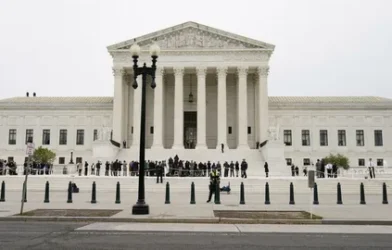Introduction
The H1B visa is one of the most well-known work visas in the United States, designed to allow companies to hire skilled foreign workers in specialty occupations. Every year, thousands of applicants from around the world aim to secure this visa as a pathway to career growth, international exposure, and in some cases, permanent residence in the U.S. For businesses, the visa provides an opportunity to bring in talent from abroad and meet skill gaps in fields such as technology, engineering, healthcare, and finance. For individuals, it opens the door to pursuing career goals in one of the most competitive markets in the world.
What is the H1B Visa
The H1B visa is a non-immigrant visa that enables U.S. employers to hire foreign professionals with expertise in specific fields. These roles often require specialized knowledge and at least a bachelor’s degree or higher. The visa was created to help American companies attract international talent when the local workforce is unable to fully meet demand. It has become particularly important in industries such as information technology, software development, and scientific research.
Eligibility and Requirements
To qualify for an H1B visa, both the applicant and the employer must meet certain criteria. The job position must be classified as a specialty occupation, which usually means that advanced technical or academic knowledge is required. The applicant must hold a degree in a relevant field or possess equivalent professional experience. Employers are also required to demonstrate that the job cannot be easily filled by a U.S. worker, which helps protect the interests of the domestic labor force.
The visa is typically granted for an initial period of three years and can be extended up to six years. In certain cases, if the worker has started the process of applying for permanent residency, the visa duration may be extended beyond six years.
The Application Process
The process for obtaining an H1B visa involves several steps. First, the employer must submit a Labor Condition Application to the U.S. Department of Labor. This document outlines the wages and working conditions of the position. After approval, the employer files a petition with the U.S. Citizenship and Immigration Services. If the petition is selected and approved, the applicant can then attend a visa interview at a U.S. consulate or embassy.
Because of high demand, the U.S. government uses a lottery system to randomly select petitions when the number of applications exceeds the annual cap. This lottery adds an element of uncertainty to the process, making the visa highly competitive.
Benefits of the H1B Visa
For employees, the H1B visa offers the chance to work in the United States and gain experience in leading industries. Many professionals view it as a stepping stone to career advancement and global opportunities. It also provides the possibility of applying for permanent residency in the future, creating a pathway to long-term settlement.
For employers, the visa is a way to fill crucial skill shortages. Many companies in technology and healthcare rely on this program to bring in international workers who can contribute to innovation and growth. The diversity of talent also benefits the U.S. economy as a whole by encouraging knowledge sharing and collaboration.
Challenges and Criticism
Despite its advantages, the H1B visa system has faced criticism and challenges. Some argue that it puts pressure on the domestic workforce by creating competition for certain jobs. Others believe the system is overly complicated and restrictive, limiting opportunities for both employers and applicants. Additionally, the lottery system means that many qualified candidates are left out each year, despite meeting all requirements.
Changes in government policies can also create uncertainty for visa holders. Shifts in immigration rules or political priorities sometimes make the process more difficult and stressful for applicants and employers alike.
Conclusion
The H1B visa remains one of the most important programs for skilled workers and U.S. businesses. It creates opportunities for individuals seeking career growth and supports employers looking for specialized talent. While the process can be competitive and sometimes uncertain, the benefits of the visa continue to make it highly sought after. For many professionals, securing an H1B visa is not only a career milestone but also the beginning of a new chapter in life, filled with opportunities and challenges in the United States.













Comments are closed